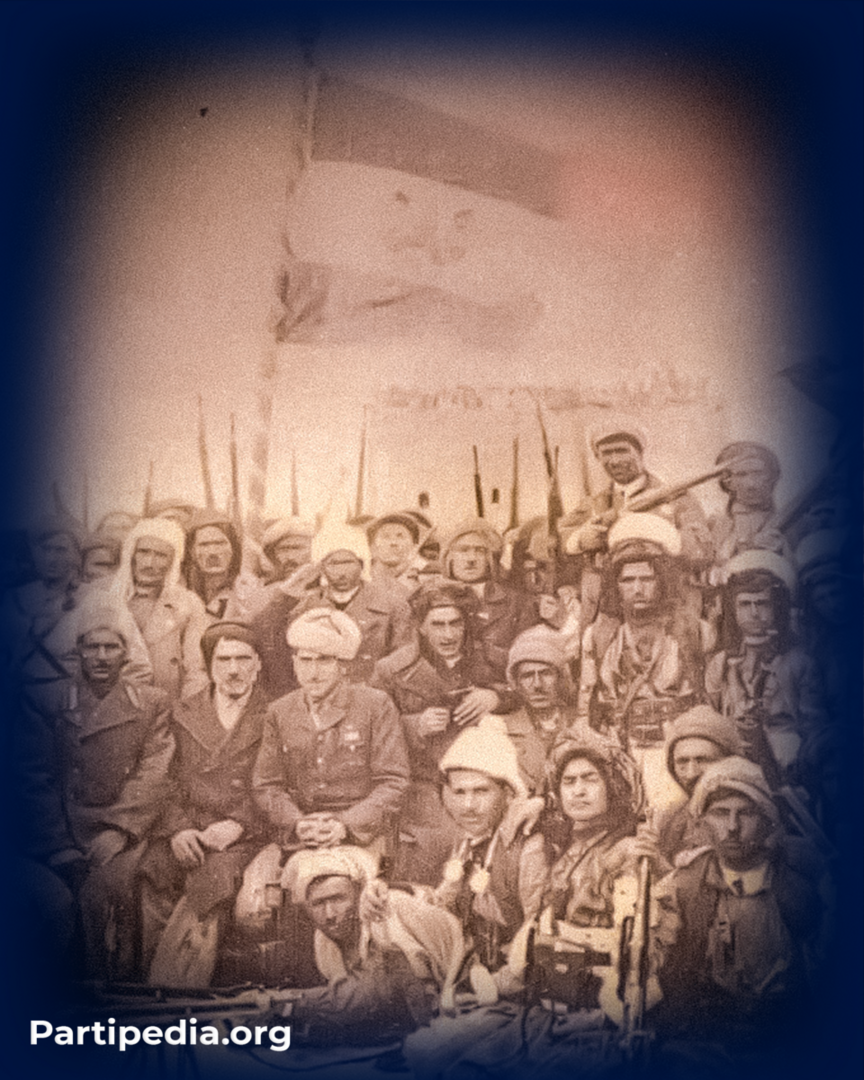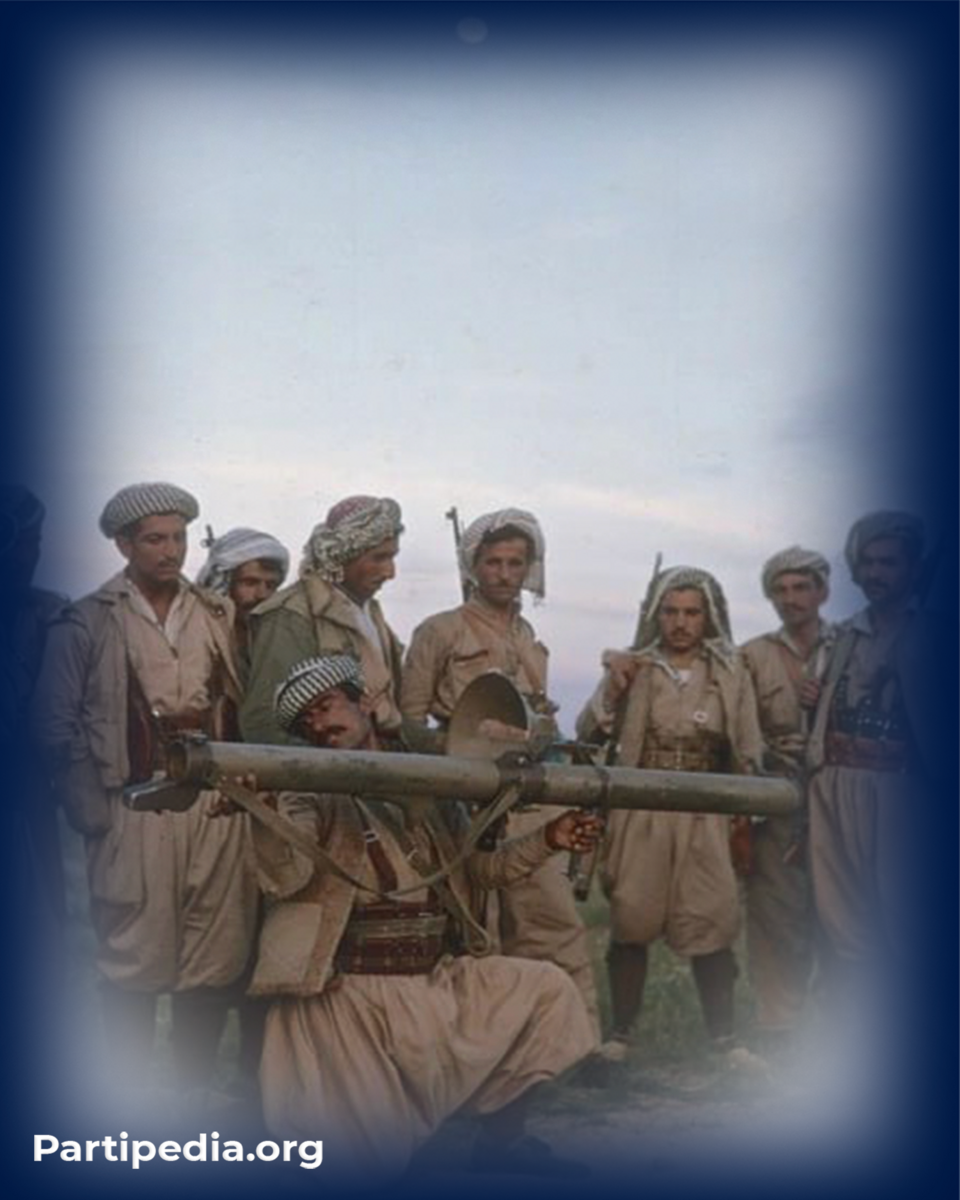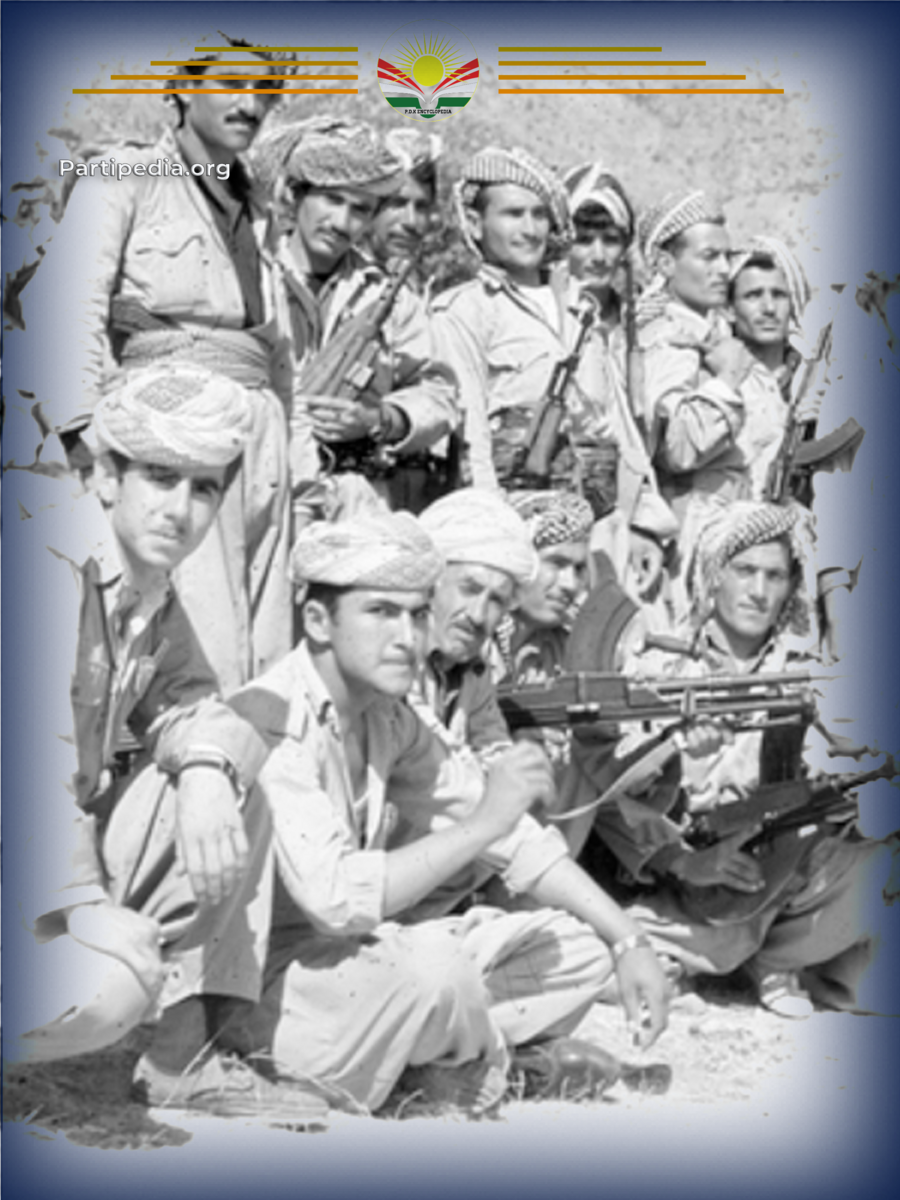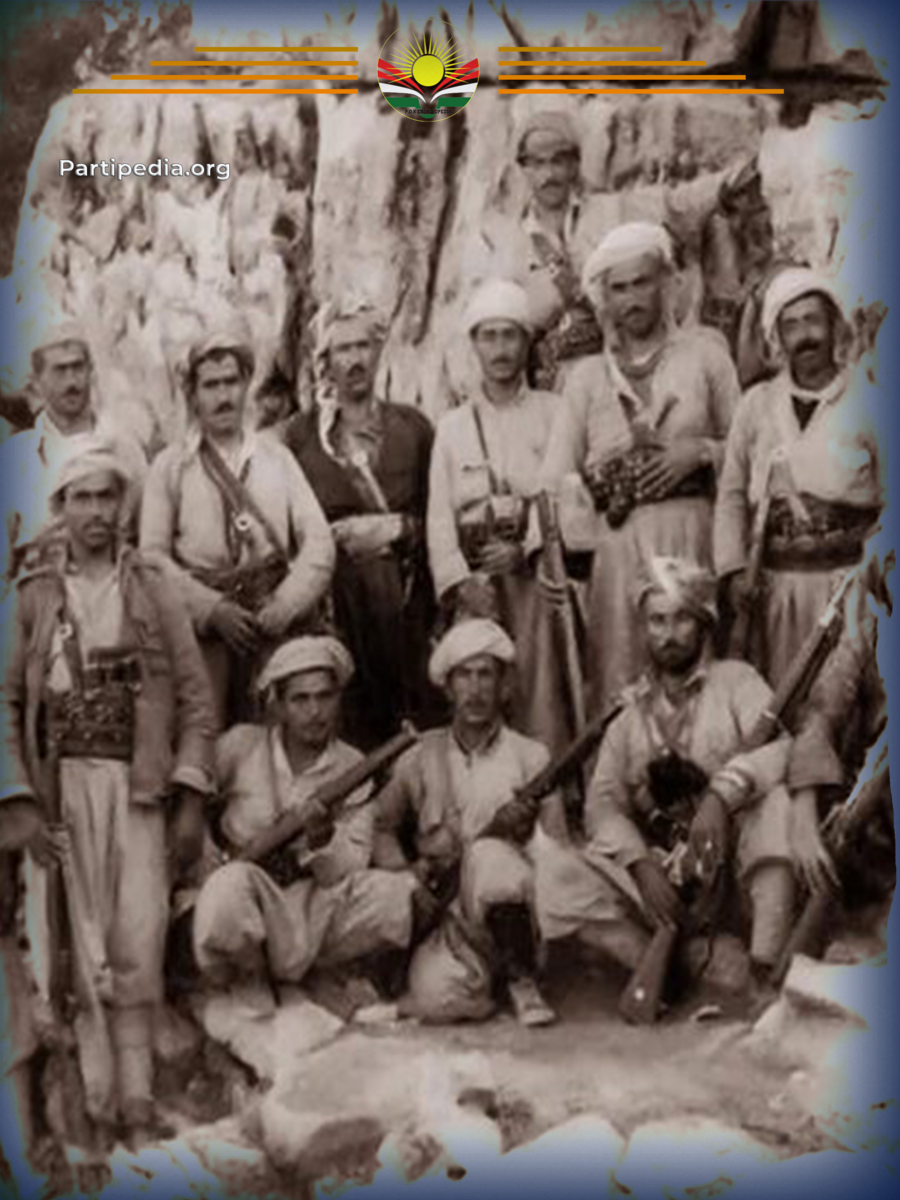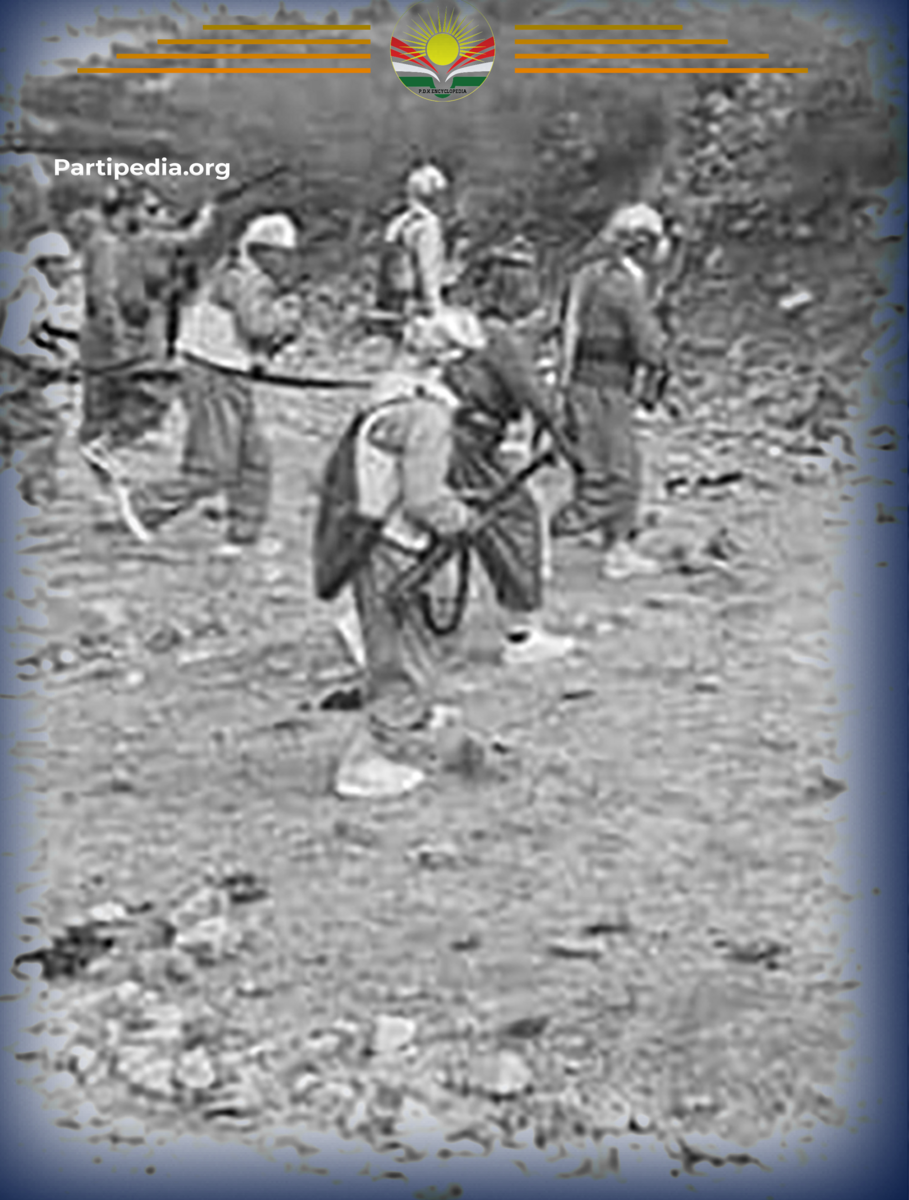Following the confrontations at Qarawa and Mamasha, where the Peshmerga forces of the Republic of Kurdistan engaged with the Iranian army, it became evident that the Iranian forces are compelled to undertake a reorganization of their troops in the area and formulate a suitable strategy for their battles against the Republic of Kurdistan.
They were compelled to make a visit to the Sara region at an elevated level and hold a meeting with Qazi Mohammed and Mustafa Barzani. Despite the signing of a treaty between Qazi Mohammad, the officials of the Republic of Kurdistan, and General Razm Ara in Sara, stipulating that both sides would refrain from attacking each other and that the republic would permit the passage of supplies to the besieged barracks, a development unfolds in the village of Maklawa. Specifically, one of the designated checkpoints entrusted to the vigilant Peshmergas of the Sardasht-Bana brigade, led by the esteemed Mr. Hamad Mawlood, revealed a breach of the established agreement by the Iranian forces. This conflict erupted as a group of Peshmergas from Barzani's forces were en route to Maklawa to procure essential supplies. During their journey, they encountered a convoy consisting of Iranian troops, four tanks, armored vehicles, and numerous vehicles carrying soldiers and weapons. The Iranian forces aimed to traverse to Sardasht and deliver provisions to the besieged troops.
Hence, the Peshmerga troops requested the Iranian military to halt for vehicle inspections. However, the Iranians disregarded the request, resulting in a subsequent clash. Under the leadership of Hamad Mawlood, the Peshmerga forces of the republic stationed in the village of Maklawa Yenne fought alongside their allies. Meanwhile, Colonel Bakr Abdul Karim Hawezi proceeded to Maklawa to provide assistance to his fellow soldiers. Accompanied by 100 Gawrk cavalry, Bakr Abdul Karim Hawezi himself led the charge towards the battleground, aiming to establish a blockade from both sides and bolster the strength of Iranian Army; however, before the arrival of the force, the Iranian army flees to Sardasht.
Upon the arrival of the Barzani and Gawrk forces in Maklawa, they were confronted with a grim scene. The Iranian army had mercilessly attacked, resulting in the loss of 14 lives and leaving several others injured. Tragically, among the casualties was one of the brave Peshmergas of Hamad Mawlood. Moreover, the injured were sent to Mahabad and then to Tewrez for treatment. After the conflict, the Peshmerga troops discovered that the Iranian soldiers had concealed a significant quantity of weaponry, ammunition, bullets, and cannons, alongside the provisions intended for the besieged forces. Consequently, it is evident that the agreement was nullified following the war, as the Sardasht military forces failed to uphold their commitments.
Sources:
١- عهقید بهكر عهبدولكهریم حهوێزی، گهشتێك به كۆماری مههاباد دا ، ههولێر، دهزگای چاپ و بڵاوكردنهوهی ئاراس، چاپی دووهم، ٢٠٠١.
٢- حسین علی رزم آرا، فرهنگ جغرافیایی ایران(آبادیها)استان ٣و٤آذربایجان،تهران، انتشارات دایره جغرافیایی ستاد ارتش،١٣٣٠.




